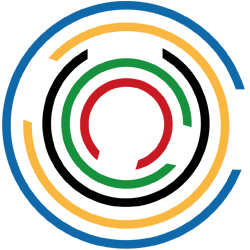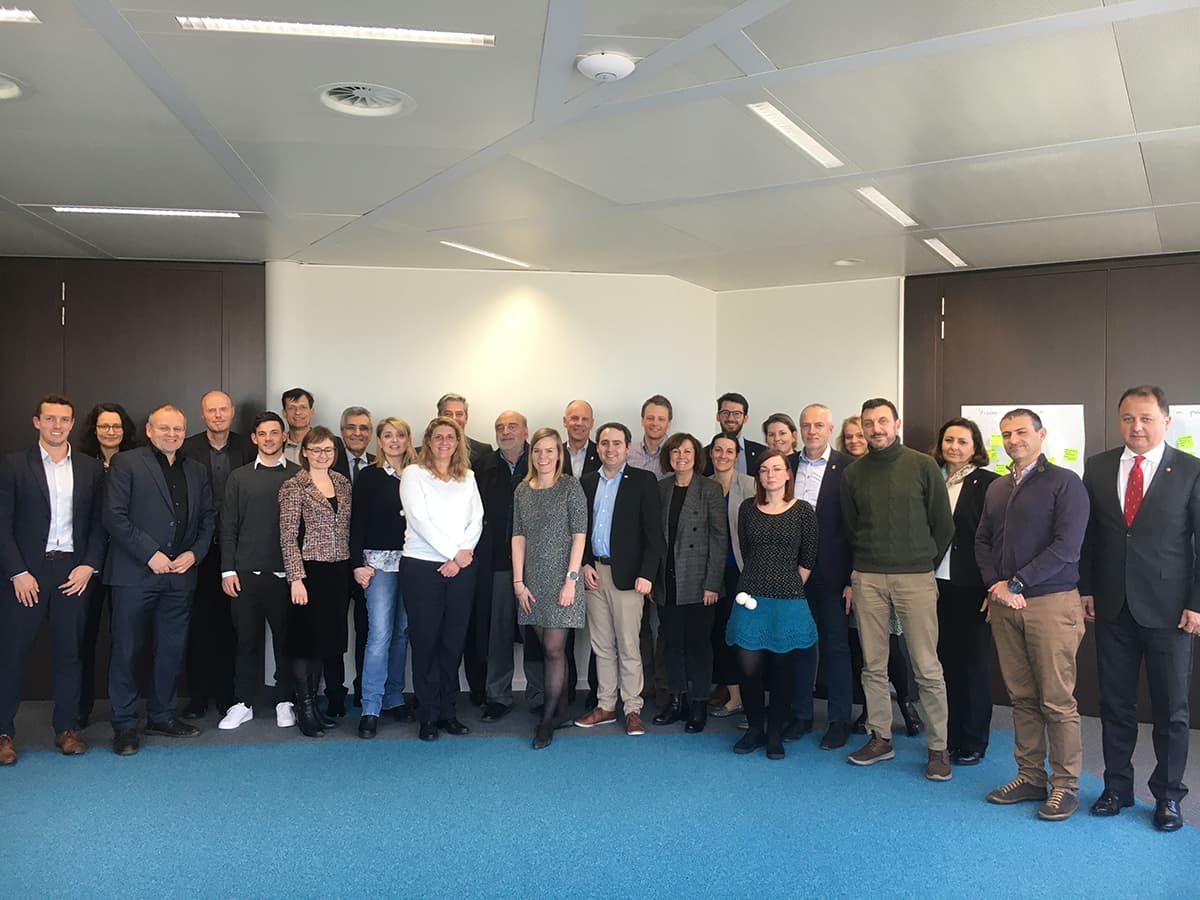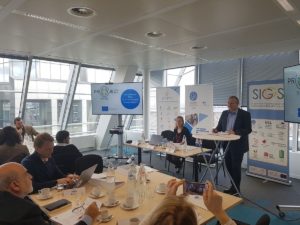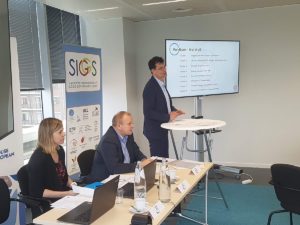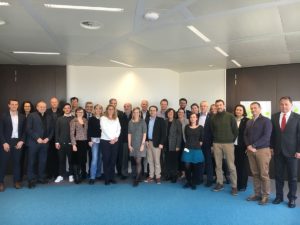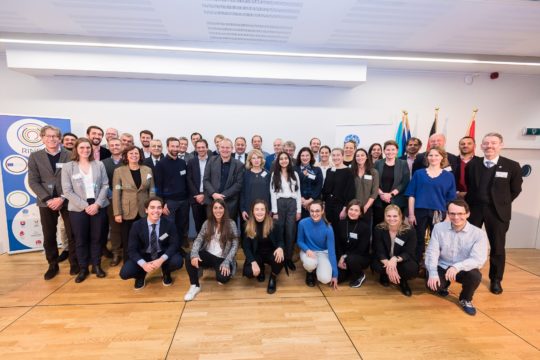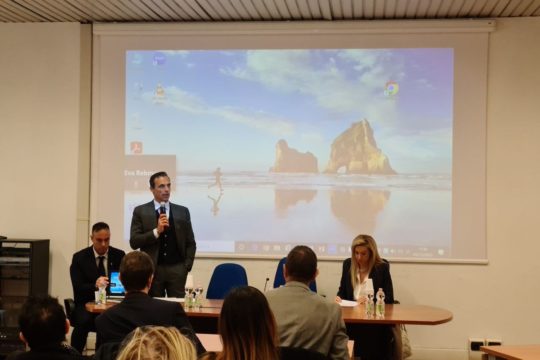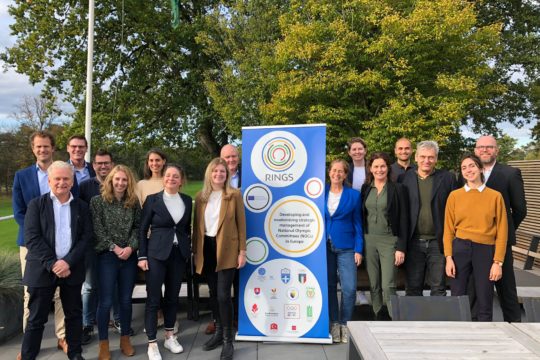On 11-12 February the kick-off meeting of the RINGS project took place in Brussels. Led by the EOC EU Office, the project will run for two and half years, from January 2020 to June 2022. The main purpose of the project is to develop and modernise strategic management of National Olympic Committees (NOC) in Europe. The aim is that the tools and outputs developed in the project will equip and support the NOCs in their daily operational management and thus improve their governance. In order to achieve this objective, several activities such as transnational meetings and national training workshops will take place in the different countries included in the consortium.
In his opening speech Folker Hellmund, Director of the EOC EU Office, underlined: “It is obvious, that sport organisations have to work more proactively in order to meet the challenges in a rapidly changing world. In this regard, the setting up and use of strategic management tools is key”.
The second day of the meeting gathered together the Secretary Generals and CEOs from the 11 partner NOCs to discuss the biggest challenges for the management of their NOCs and to find profound answers on mega-trends, that are impacting the domain of sport. The day started off with interesting and eye-opening keynote speeches from Marc Coudron, President of the Royal Belgian Hockey Association, and Remco Hoekman, Director of Mulier Instituut. In addition, Joanna Zipser-Graves from the Olympic Solidarity stressed the interest of the IOC for the RINGS project, and mentioned that the tools to be developed could be very interesting for all NOCs, also outside Europe.
Mr. Coudron shared his lessons learnt in building the success of a national federation. During his Presidency, the Royal Belgian Hockey Association has had a big increase in their memberships, as in 2005 there were 16 000 members whereas now in 2020 there are 52 000 members. Furthermore, the sport success has also improved massively as, for instance, Belgium won the Men’s Hockey World Cup in 2018 and got silver at the 2016 Rio de Janeiro Olympic Games.
The second keynote speaker, Remco Hoekman, focused on the current and upcoming mega-trends in society and shared his vision on how these mega-trends will impact sport. This very stimulating presentation gave a good basis for the afternoon discussions. Building on this dialogue and the expertise of Professor Doctor Holger Preuss from the Johannes Gutenberg University Mainz, in the discussions the partners started to reflect upon the way to further develop a strategic approach with public affairs and stakeholders.
Project Manager Heidi Pekkola was very pleased with the successful kick-off: “The project consortium is very motivated and full of expertise, which will help us to run this ambitious project. There seems to be a need for a project like RINGS, as some NOCs also outside the consortium have already shown interest. Thank you to all Secretary Generals and CEOs who took the time to join us for this kick-off meeting and shared their knowledge, expertise and concerns.”
For the next steps of the project, the consortium will meet in Vilnius, on 4-5 May 2020. They will continue to work on developing the strategic management concept and contribute to one of the key outputs of the RINGS project, a handbook on strategic and change management of the NOCs.
Co-funded by the European Commission through the Erasmus+ Sport Programme, the RINGS project gathers an important consortium with 13 organisations including 11 NOCs (Denmark, Belgium, The Netherlands, Turkey, Italy, Bosnia and Herzegovina, Slovakia, Liechtenstein, Lithuania, Cyprus and Greece) and the Johannes Gutenberg University Mainz, as well as the EOC EU Office as project leader.
